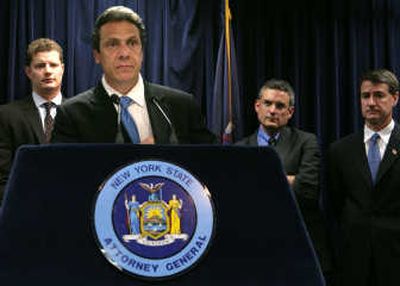Internet firms to block child porn

WASHINGTON – Three of the nation’s major Internet service providers have agreed to block customer access to newsgroups and Web sites that offer child pornography, according to an agreement announced Tuesday by the New York attorney general’s office.
The agreements, which were hailed by child-welfare advocates as a significant step, push the service providers to take a more active role in monitoring what takes place over their lines.
But by forcing providers to act as censors, the agreements may also violate the First Amendment, free-speech advocates said.
Under the deals with Sprint Nextel, Verizon Communications and Time Warner Cable, which are expected to hold nationwide, the companies agreed to shut off access to newsgroups believed to traffic in child pornography and to remove from their servers any Web sites offering such images.
The targeted sites will be based on a list compiled by the National Center for Missing & Exploited Children.
“When it comes to child pornography, there is no excuse this office will tolerate,” New York Attorney General Andrew Cuomo said during a news conference to announce the agreements.
Other Internet service providers are part of the office’s investigation, too, and negotiations with them are ongoing, officials said.
The agreements arise from an eight-month child pornography probe in which the New York investigators discovered illicit pictures on the Internet and then, posing as customers, filed complaints with the service providers involved. Internet providers are supposed to review each complaint and then, if warranted, pass the information to the National Center for Missing & Exploited Children.
But at least some of those complaints were not readily acted upon, officials said.
Ernie Allen, president of the National Center for Missing & Exploited Children, said his group has developed a list of child-porn Web sites but only a few of the major Internet companies have agreed to use the list to take them down.
The agreement will force the service providers involved to enforce the list.